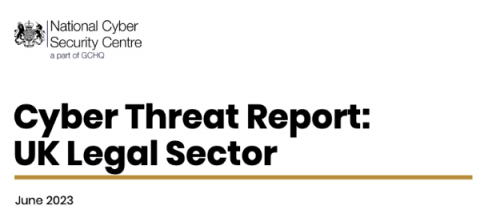Security | Threat Detection | Cyberattacks | DevSecOps | Compliance
Latest News
API Security: Navigating the Threat Landscape
An Application Programming Interface (API) is an essential and ubiquitous software that allows the exchange of information between day-to-day applications and processes, such as Software as a Service (SaaS) applications, Internet of Things (IoT) devices, universal profile login pages, and autonomous vehicles. APIs synchronize and maintain the data exchange between clients and servers, responding to each request.
Is the CMMC 2.0 Rollout on the Horizon?
The Department of Defense (DoD) introduced the Cybersecurity Maturity Model Certification (CMMC) in 2019. This framework outlined a series of security standards contractors must meet to win DoD contracts, so it’s a big concern for many companies. However, four years later, the Cybersecurity Maturity Model Certification rollout has yet to take effect. Part of this delay comes from the fact that the DoD has revamped the CMMC.
5 Essential Elements of a Municipal Cyber Security Plan
Keeper Launches New Global Password Report
Keeper Security has released its latest research, Password Management Report: Unifying Perception with Reality, which assesses the password habits of individuals across the United States and Europe.
Cybersecurity is not a tool or software piece; is a state of mind: Bridging the gap for career changers
In recent years, the field of cybersecurity has witnessed a significant influx of professionals from non-Information Technology (IT) backgrounds who are making the leap into this dynamic industry. As a cybersecurity technical developer and instructor, I have had the privilege of delivering many customers in-person and virtual training courses and meeting numerous individuals seeking to transition into cybersecurity from diverse non-IT related fields.
How CrowdStrike Uses Similarity-Based Mapping to Understand Cybersecurity Data and Prevent Breaches
The CrowdStrike Falcon® platform harnesses massive amounts of data, collected from trillions of events that are routinely captured on a daily basis. This data must be organized in a way that facilitates the confluence of disparate representations before the inherent value of that data can be realized.
Massive Impersonation Phishing Campaign Imitates over 100 Brands and Thousands of Domains
A year-long phishing campaign has been uncovered that impersonates 100+ popular clothing, footwear, and apparel brands using at least 10 fake domains impersonating each brand. We’ve seen plenty of attacks that impersonated a single brand along with a few domains used to ensure victims can be taken to a website that seeks to harvest credentials or steal personal information.
National Cyber Security Centre Notes UK Law Firms are Main Target for Cybercriminals
In the most recent Cyber Threat report from the National Cyber Security Centre (NCSC), it is clear that UK law firms are a gold mine for cybercriminals. Given the large sums of money and highly sensitive information that is handled, it's no question as to why UK law firms would be an attractive target for threat actors.
Newly Discovered Phishing Attacks Target Bank Customers
First National Bank has warned of an increase in phishing and smishing attacks, IT-Online reports. Trish Ramdhani, head of fraud at FNB Card, stated, “In recent cases, some consumers received SMSes claiming that their bank requires them to urgently FICA by clicking on a link that takes them to the fraudster’s platform, where their information is then compromised.









